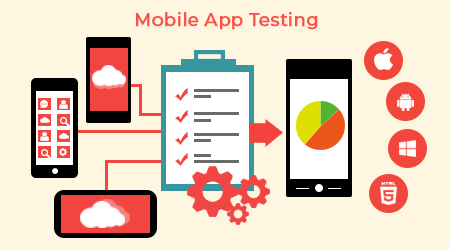Mobile App Testing and why it is Essential

Over the years, the number of mobile apps have grown rapidly, inundating users with a colossal number of apps. Quality is the key to the success of the app, and this can only be achieved through mobile application testing.
The success or failure of an app can be measured by the number of user downloads, positive reviews, and the continuous inclusion of new features to keep users engaged, as well as dealing with quick bug fixes.
Users associate experiences with mobile platforms based on their overall brand experience. An app that presents defects and bugs is likely to lose you customers, as well as brand reputation. Dissatisfied users will post negative reviews on social media platforms, or switch to one of the many alterative apps available, which could result in a short life cycle for your app.
Mobile application testing allows you to deliver the best quality app to your users by continuously testing its functionality, usability, and consistency, ultimately leading to a growth in your user base.
Biggest challenges faced by Mobile App Developers
One of the biggest challenges faced by mobile app developers is the vast number of mobile devices in circulation. The devices have different sizes, shapes, software systems, operating systems, hardware, and more. In addition to testing different types of phones, it is important to consider speed, security, privacy, and other factors when conducting mobile app testing.
The best way to achieve this is to conduct mobile app testing on a range of devices, continuously engage users by introducing new features, and fix any bugs or functionality issues within short intervals, so that users do not lose interest and move on to a competitor’s product.
Another point of testing should be to check how the app functions when there is a change in the mobile network, or when the mobile device is being used overseas on a roaming network. The app should ideally be able to function normally online, offline, or when signals are very weak.
TYPES OF MOBILE APP TESTING
-
Acceptance Testing
Acceptance testing is conducted to make sure the mobile app can handle tasks without crashing or displaying any bugs/errors. -
Unit Testing
This is when the smallest part of the app is tested to ensure that the app features are fully functional. -
Optimal Coding Guidelines
This process uses optimal coding strategies to ensure all bugs in the app are eliminated, server issues are sorted, security and privacy settings are in place, eliminate data truncation, and test for any other problems within the app. -
User Experience Testing
In this stage, testing will be conducted to ensure the user needs are met, with a built-in instinctive navigation and attractive UI design. -
Load Testing
Using load testing, it will be possible to evaluate if the app delivers a consistent, reliable, and fast user experience. -
Compatibility and Usability Testing
Through usability testing, you can assess how users interact with the app. The team will supervise the process, so that any issues encountered can be fixed in real time. During this stage accessibility will be tested across browsers, operating systems, and devices. -
Performance Testing
Performance testing can be used to make sure the mobile app can handle all the user traffic without crashing or glitching.
At DTE we guarantee that we take quality assurance testing for mobile apps very seriously. We offer expertise through each stage of the app development and testing process, to ensure you deliver an application that is unique, innovative, and meets the high demands of your target user base.

